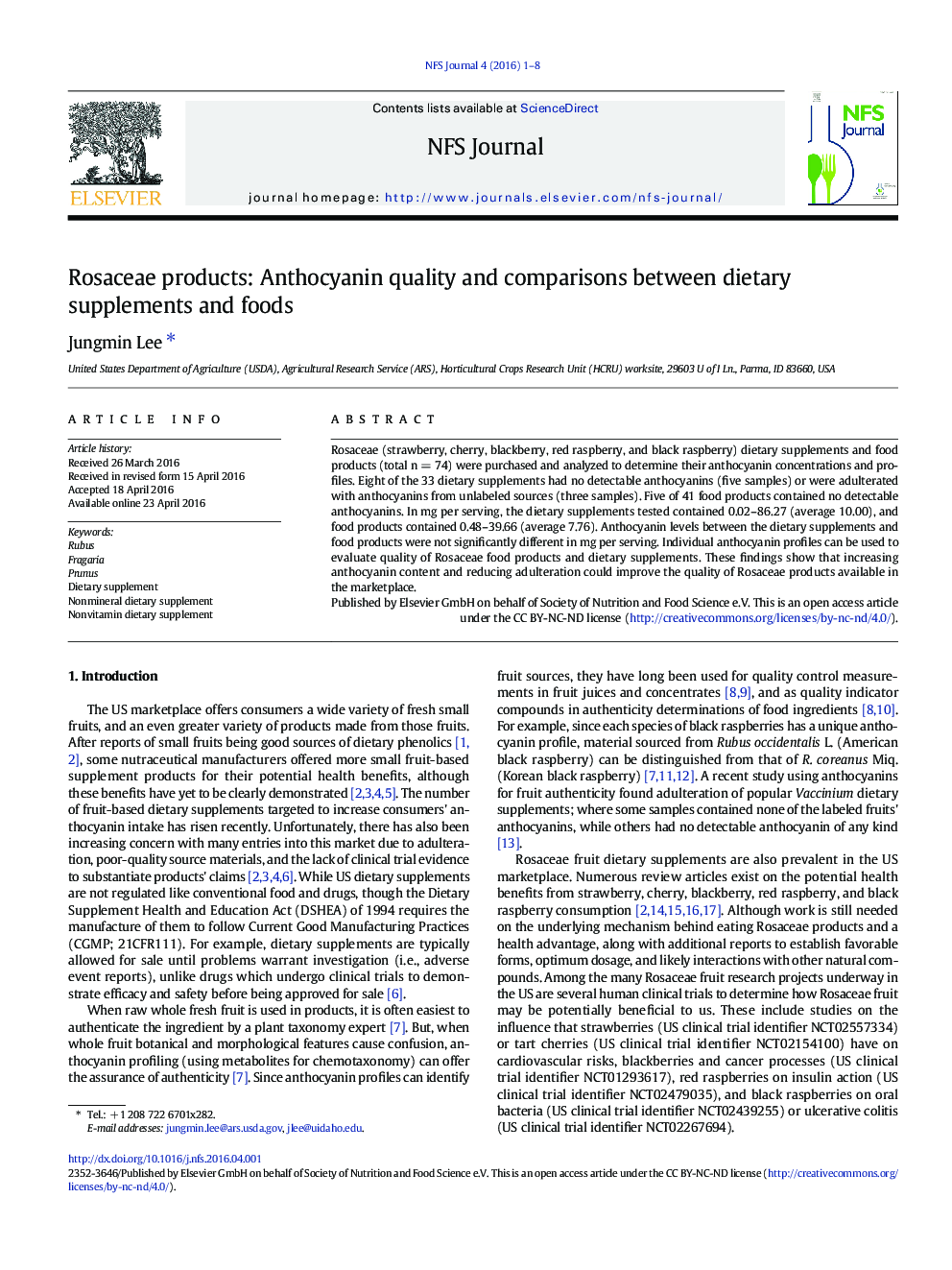| Article ID | Journal | Published Year | Pages | File Type |
|---|---|---|---|---|
| 1085602 | NFS Journal | 2016 | 8 Pages |
Rosaceae (strawberry, cherry, blackberry, red raspberry, and black raspberry) dietary supplements and food products (total n = 74) were purchased and analyzed to determine their anthocyanin concentrations and profiles. Eight of the 33 dietary supplements had no detectable anthocyanins (five samples) or were adulterated with anthocyanins from unlabeled sources (three samples). Five of 41 food products contained no detectable anthocyanins. In mg per serving, the dietary supplements tested contained 0.02–86.27 (average 10.00), and food products contained 0.48–39.66 (average 7.76). Anthocyanin levels between the dietary supplements and food products were not significantly different in mg per serving. Individual anthocyanin profiles can be used to evaluate quality of Rosaceae food products and dietary supplements. These findings show that increasing anthocyanin content and reducing adulteration could improve the quality of Rosaceae products available in the marketplace.
